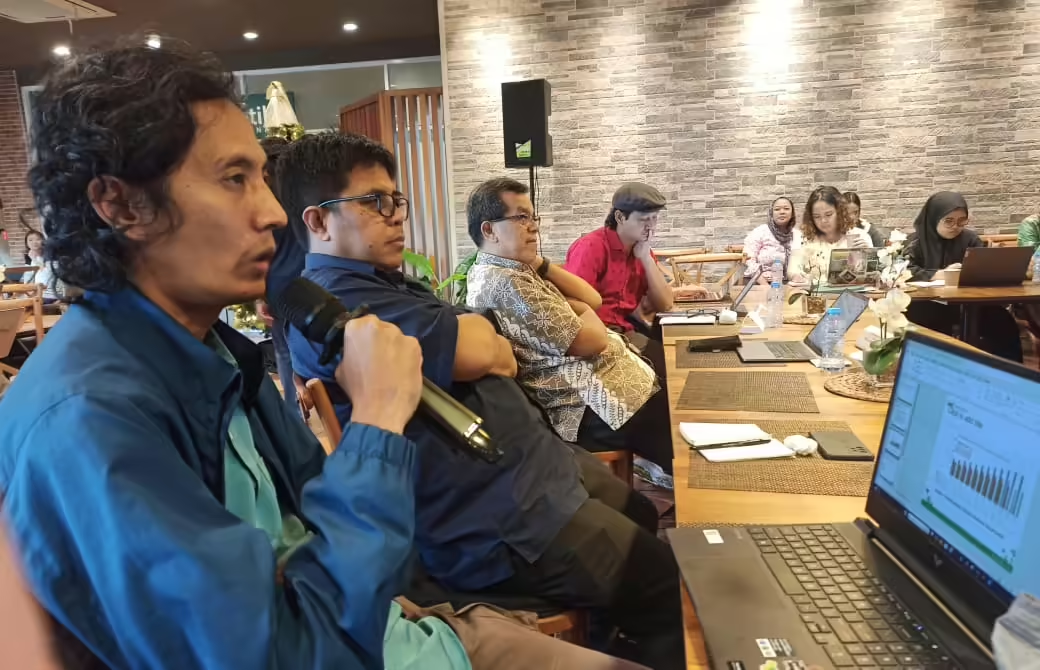Indonesia’s JETP Progress: $21.6 Billion Green Energy Investment Plan Targets Renewable Power and Job Creation
Attended directly by President Joko Widodo along with world leaders, the Just Energy Transition Partnership (JETP) project was officially launched on November 15, 2022, on the sidelines of the G20 meeting in Bali. A year later, the Comprehensive Investment and Policy Plan (CIPP) policy proposal was launched in Jakarta on November 21, 2023. But what is its current development?
The Head of Indonesia’s JETP Secretariat, Paul Butarbutar, revealed that the funding aspiration from JETP discussed at COP 29 in Baku, Azerbaijan was USD 1.3 trillion. However, the amount eventually agreed upon was USD 300 billion. From this amount, Indonesia’s share is USD 21.6 billion.
The funding operated by JETP comes from ten developed countries and international financial institutions. These JETP funds will target just energy transition projects in several developing countries, including Indonesia.
“Why is JETP important? If it can be implemented well, there will be new job opportunities. A JETP survey regarding the construction of a 35-megawatt geothermal power plant requires 2,500-3,000 people over five years for job creation,” he said in Jakarta, quoted Tuesday (10/12/2024).
The Indonesia JETP Secretariat has also established Investment Focus Areas ranging from energy efficiency, electrification, transmission development, renewable energy power plant development, coal power plant retirement, and renewable energy electricity supply chain.
He also revealed why Elon Musk decided not to invest, despite meeting with former President Joko Widodo and former Coordinating Minister for Maritime Affairs and Investment Luhut Binsar Pandjaitan, because Indonesia’s electricity source still uses fossil energy as the main basis for energy generation.
“Analysis results launched last year agreed to limit carbon emissions from power plants connected to PLN to only 250 tons of carbon emissions in 2030. For this, renewable energy needs to contribute 44 percent, then we will get positive impacts from that investment,” he explained.
Paul explained that currently, JETP has approved funding of USD 1 billion in loans and equity. These funds will target projects directly related to electrification and energy efficiency involving domestic and foreign stakeholders.
Based on Paul’s observations, several energy efficiency activities require large costs. This condition makes banks reluctant to provide financing. Therefore, Paul hopes developers or companies can utilize JETP funding. This will also attract financing attention from banks.
“We are evaluating the purchase of 10,000 buses for several major cities, including Jakarta, at a cost of USD 1 billion,” he said.
Access to just energy transition project funding
Paul hopes that projects with the JETP label can follow the nine established standards. Standards 1-8, according to him, are already used by all domestic and foreign banking institutions as requirements for accessing just energy transition project funding.
“While the ninth standard concerns economics and diversity,” he explained.
Meanwhile, regarding banking support, based on Financial Services Authority (OJK) regulations, they have issued a roadmap for sustainable financing. Thus, banks can invest in green activities such as renewable energy.
“Looking at financing for small-scale power plant projects under 10 megawatts, almost all use domestic banking money. Above that uses international banking,” he said.
The Coordinator of Energy Conservation Program Preparation, Directorate General of New, Renewable Energy and Energy Conservation (EBTKE), Ministry of Energy and Mineral Resources (ESDM) Muhammad Arifuddin explained that they are encouraging JETP to help fund Sustainable Renewable Energy (SRE) cooperation involving communities and students.
“We encourage JETP to help the government because funds are limited, so assistance from stakeholders certainly further encourages renewable energy development by involving the community,” he said.
Additionally, Arifuddin said, other funding needed concerns renewable energy development needs in regions. Based on Ministry of ESDM calculations, there are needs for 253 power plant units in the form of hybrid power plants, solar power plants, and rooftop solar power.
“In the current renewable energy development waiting list, there are 6.9 megawatts to electrify 13,350 households across Indonesia,” he said.
Afifuddin hopes that JETP funding will also target projects that provide direct benefits to communities in the form of grants. According to him, this aligns with Presidential Regulation Number 112 of 2022 concerning the Acceleration of Renewable Energy Development for Electricity Supply.
“In preparing this roadmap, one of the criteria we added outside those established in Presidential Regulation 112 is the aspect of just transition, both for laid-off workers and affected surrounding communities,” he concluded.
- How is the development of the equitable energy transition program in Indonesia?
 JETP funds will target equitable energy transition projects in a number of developing countries, one of which is Indonesia.
JETP funds will target equitable energy transition projects in a number of developing countries, one of which is Indonesia. - Samirono village energy transformation, from waste to clean energy
 Samirono village has proven that innovation and collaboration can bring big changes. They showed the world that waste can be turned into clean energy.
Samirono village has proven that innovation and collaboration can bring big changes. They showed the world that waste can be turned into clean energy. - Alternative energy from Sumedang tofu waste, between innovation and sustainability
 Sumedang tofu is not only savory and delicious, but there is a waste problem that pollutes the environment. In Giriharja Village, tofu waste is processed into alternative energy.
Sumedang tofu is not only savory and delicious, but there is a waste problem that pollutes the environment. In Giriharja Village, tofu waste is processed into alternative energy. - Indonesia’s Green Energy Transition: JETP Secures $1 Billion for Electrification Projects
 Indonesia’s JETP Progress: $21.6 Billion Green Energy Investment Plan Targets Renewable Power and Job Creation
Indonesia’s JETP Progress: $21.6 Billion Green Energy Investment Plan Targets Renewable Power and Job Creation - Elite-centric coverage of energy transition: A critical analysis of climate crisis reporting
 Media prioritizes coverage of energy project achievements or company commitments to energy transition from the sources’ perspective
Media prioritizes coverage of energy project achievements or company commitments to energy transition from the sources’ perspective - JETP and the reluctance of developed countries to pay “climate debt”
 The majority of public financing in the JETP project is loans, not grants. Developed countries are seen as reluctant to pay climate debt.
The majority of public financing in the JETP project is loans, not grants. Developed countries are seen as reluctant to pay climate debt.








